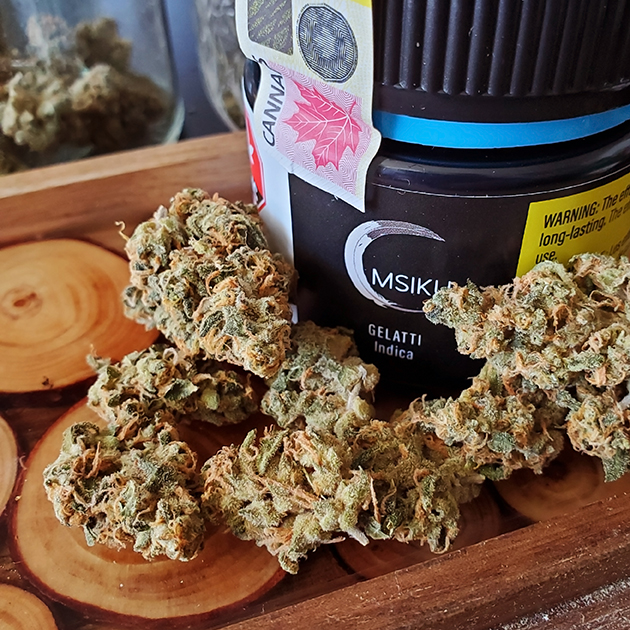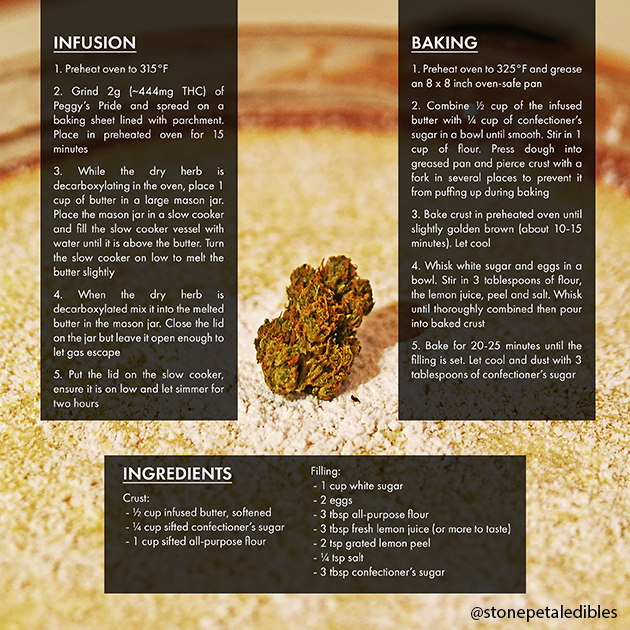How Msiku, one of Canada’s few Indigenous-owned cannabis cultivators, set the industry standard for authenticity and quality in the early days of Canada’s recreational market
This story was our feature piece in Volume 2, released on 4/20. To read the rest or purchase a soft or hard cover copy click here
The best part of Alexander Paul’s job as a cultivation technician at Atlanticann Medical is the pot-up: when cannabis seedlings have outgrown their smaller vessels and are transplanted into larger stone wool blocks.
“They’re no longer going to be babies,” he says. “They’re going to work their way to full grown plants.”
Under the right care and conditions the flower from this and hundreds of other cannabis plants will enable him and dozens of other maritimers to make ends meet. If they do their jobs right they may even have a brand that can stand the test of time.
“I like to joke we’ll be the next Alexander Keith’s, ” Paul says with a laugh.
Atlanticann’s facility in Lower Sackville, Nova Scotia is kept to an exacting standard uncommon in today’s industry. Employees shower and don scrubs, goggles and gloves before they enter the grow rooms. If they leave for a meeting or go for lunch they shower again on the way back in.
Paul’s job at Atlanticann is a lot warmer than his last gig. He spent several years in the oil patch where outdoor temperatures can reach -45°C. It’s a stark contrast to the 28°C grow rooms in Nova Scotia but the stifling heat can be just as difficult to work in as the cold.
“It’s not even the humidity. It’s the intensity of the lights. You sweat just mopping the floor.”
Attracting skilled labourers back to the Maritimes from the oil and gas fields out west has been a long-term political and economic goal for the people of Nova Scotia. When isolation from friends and family finally caught up with Paul he came back east to look for work in the cannabis industry.
“I didn’t want to just hitch my wagon to the first cannabis job I saw,” he says. “A lot of LPs were coming and going; a lot of them are only in it for a quick buck.”
When he found out Atlanticann was majority owned by the Assembly of Mi’kmaq First Nations he jumped to apply. Paul himself is part of the Membertou nation.
“It’s a huge, fundamental thing to be a part of it.”

Christine Halef, CEO of Atlanticann Medical
The recreational cannabis brand Atlanticann Medical is most widely known for is Msiku. Pronounced ‘M-SEE-GOO’ the word means ‘grass’ in Mi’kmaki. The Mi’kmaq have been inhabitants of Nova Scotia and the surrounding areas for over 13,000 years. Partnering with the Assembly led to a series of unexpected—and rare—business experiences for CEO Christine Halef.
“Working with the Mi’kmaq honestly has been the best thing that has ever happened for this company. A lot of shareholders will just sit back and want to know when their dividend payments are coming. They’re not like that at all.”
Halef’s budget has never been enormous. Despite the record profits seen in California and Colorado’s markets banks did not loan money to cannabis producers in 2014. Halef’s money came from her family.
“It was a lot of pressure for me. You’re hoping to God you’re going to be successful and you’re not going to squander your family’s investment.”
When it came time to design a brand Halef knew outsourcing wouldn’t be cheap and getting it right would be critical. Thankfully the Mi’kmaq stepped up.
“When they came back with the brand and the logo I said ‘I love it.’ We didn’t have to pay some marketing company. The Mi’kmaq did it.”
With that marketing load off her shoulders Halef returned to focusing on product quality with her cultivation and post-production teams. It was the only way she would be able to compete with the mega-growers.
There are lots of folks who are experts when it comes to growing cannabis in smaller batches. Anthony Giardino is one of them. He was instrumental in piloting Atlanticann through the early stages of licensing and construction but even Giardino knew his limits when it came to large-scale agricultural operations. Finding a grower proved harder than either Giardino or Halef realized.
“We had interviewed so many people and no one seemed to really stick,” Halef says. “There was nobody we felt totally confident in.”
Halef knew she’d be attracting maritimers back home from the oil patch but didn’t expect to be attracting talent from the United States: a rare occurrence for skilled labour in North America. Then Tim Nolan came along.
A master grower recommended by one of Atlanticann’s U.S.-based investors, Nolan had almost a decade of experience overseeing cannabis production in the Colorado market. He also just happened to want to move to Canada. Halef remembers when they first met.
“Instantly I’m like ‘this is the guy.’ He knows a lot about cannabis cultivation and he had already managed several commercial grows in a mature market.”
For Nolan it was Halef’s work ethic and attention to detail that sealed the deal.“[They’re] on the site and into the minutiae with the plans,” Nolan says. “They’re really hands on with the details and you don’t always see that from ownership groups in cannabis surprisingly enough.”
Nolan’s primary concern is maintaining the quality one would find in a homegrow but at massive scale. Atlanticann’s facility in Lower Sackville is 70,000 square feet and produces roughly 6,000 kilograms per year. By Canadian standards this is small: budgets built on stock market bubbles helped establish comically large growing and processing facilities across the country at the beginning of legislation. Many of those companies continue to slash prices in an effort to move low quality product. Some have gone out of business completely.
“You can set yourself up for failure in those early stages,” Nolan says. “Thank God in 2011 I didn’t have a bunch of money to build the grow I wanted. It would have been the worst decision anybody had ever made.”
Experience taught him true high quality product is difficult to achieve at scale. Prior to his role with Msiku he worked for a larger producer in Colorado overseeing six different grows at the same time.
“You just get spread thin, right? You see some of these people who say they’re going to grow 30,000 kilograms in a year. No one person can know what that product looks like.
“I believe great cannabis can be grown at scale but it has to be treated with respect and you have to look at the process. It just takes time to get people trained — like any other business.”
The company sold four different cultivars last year under the Msiku brand (Peggy’s Pride, Gelatti, Nova Glue and White Wedding). What they started in Nova Scotia and Ontario they’ve now replicated in B.C., Saskatchewan and New Brunswick. Most consumers know affordability and quality in today’s legal market is a venn diagram with a very thin overlap. Atlanticann fits very neatly inside this small area.

For example, although it would cost more to hand trim flower, Halef tossed the machine-trimmers she’d bought early on when her staff said they wouldn’t buy anything that went through them. Halef’s repeated decisions to focus on quality and brand loyalty over a quick profit would become her edge in an overcrowded market.
“To be honest sometimes it’s me talking to people on Instagram,” she says. It’s important for her to get feedback quickly so she can address it with her team.
“I’m essentially treating this like it’s my child. As soon as I see something like that we call a meeting. We have to make sure what we’re putting out there we really stand behind. Would you be happy if you bought that jar?”
Halef is a mother of two and pharmacist among many other things. She has experience overseeing construction, running large-scale property management and hospitality services and has significant leadership exposure in residential and commercial real estate.
Her professional experience as a pharmacist is what triggered her curiosity about cannabis. Halef’s old dispensary in Halifax shared a wall with a pain clinic.
“Every prescription was a narcotic, an opioid. I would see very well-respected professional individuals’ lives fall apart because they were so addicted.”
Research began piling up about the effectiveness of treating pain with cannabis instead of opioids. The plan at first was to serve a medical market but it never materialized at the pace necessary to keep the facility competitive. With the Mi’kmaq now involved Halef felt even more pressure to improve the balance sheet.
“This is a group of minority communities that doesn’t have the same advantages as most of us and this is a very important investment for them,” she says. “It’s huge. So when I think about how to make sure their investment is secure but still be as true to what we are it’s through the rec market.”

Nova Glue trichomes glisten under a digital microscope
In the coming months Msiku will be busy. They’re introducing two new cultivars (Apex and ICC x Kush Mints) and also finally bringing their products to the medical market. It wasn’t just a focus on quality that allowed Nolan and the rest of the team to bring these two new cultivars to market. Only the long-term vision of the Mi’kmaq Chiefs gave him the space and time necessary to phenohunt properly.
“We’re popping over 100 seeds and we might keep three,” Nolan says. “The painstaking thing is it takes almost a year. We popped ICC x Kush Mints last March and we’re going to bring that strain to the market this March. You sit down with people and you say this program is going to bear fruit in 2023 – most people don’t want to think like that.”
The Mi’kmaq see this as a way to provide for their community in perpetuity, sustainably. They want to give people like Alexander Paul a reason to come home and stay there. Their focus on a longer horizon along with their patience and openness are reflected in the company’s open-door policy (Halef was interrupted at least twice during an hour-long interview with Stash). It has also crept into her personal life.
“There’s such a kindness and respect,” she says. “They really do care and it’s been really fascinating to see them merge business acumen with ethics. They’ve had a positive influence on me and my approach to really just anything.”

“There are so many quick buck artists involved in the industry, right?” Nolan says. “If you’re working for people with those kind of intentions it’s going to be hard to put a premium product out. It’s really a privilege to work with a group who has faith in a long term vision and gives us the space to execute it.”
In a market flooded with over-priced, low quality product it is a breath of fresh bong air to have the talents and experience of the team at Atlanticann growing such top shelf bud. As many rush to extract quick profit the Mi’kmaq have counter-intuitively created one of the most successful and widely lauded brands by taking a patient, slow approach much like any gardener would with their plants. Msiku’s focus on product quality and consistency rather than kitschy marketing campaigns ensured their place in the future of the industry both internationally and right here at home.
For Alexander Paul the opportunity to work in a rewarding field near his family, friends and community with long term career growth possibilities is exciting.
“Nova Scotia is my home,” he says. “I’ve travelled, I’ve lived in other places and this place genuinely makes me feel happy. It’s nice having an industry that’s starting to feel more and more like home.”

To read more from Volume 2 click here



